P O D C A S T
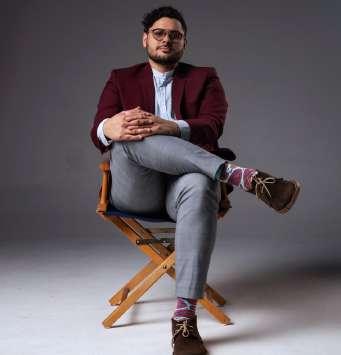
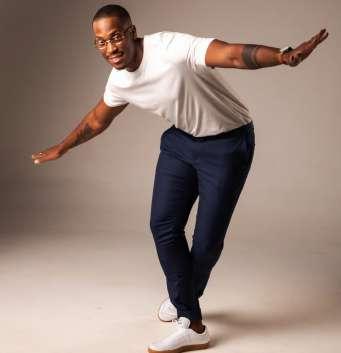
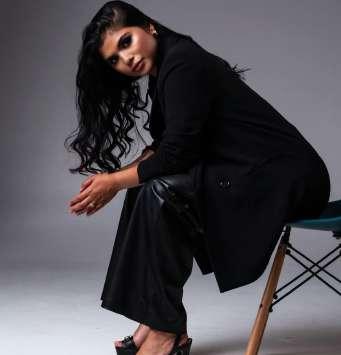
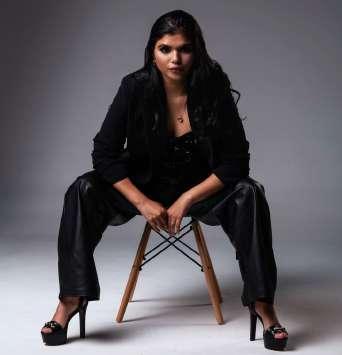
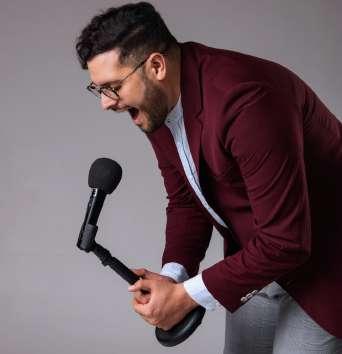
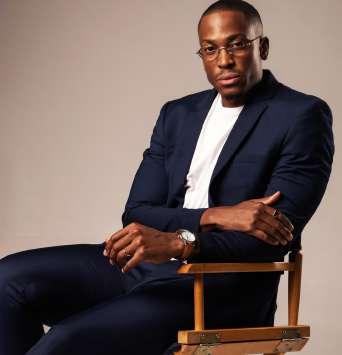
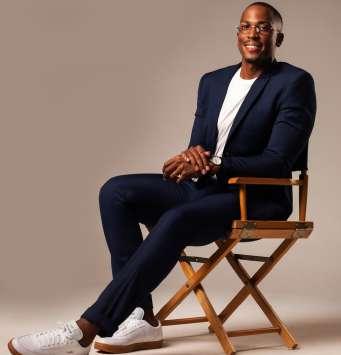
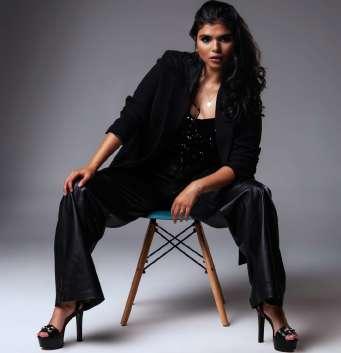
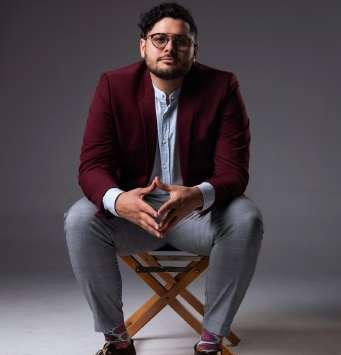
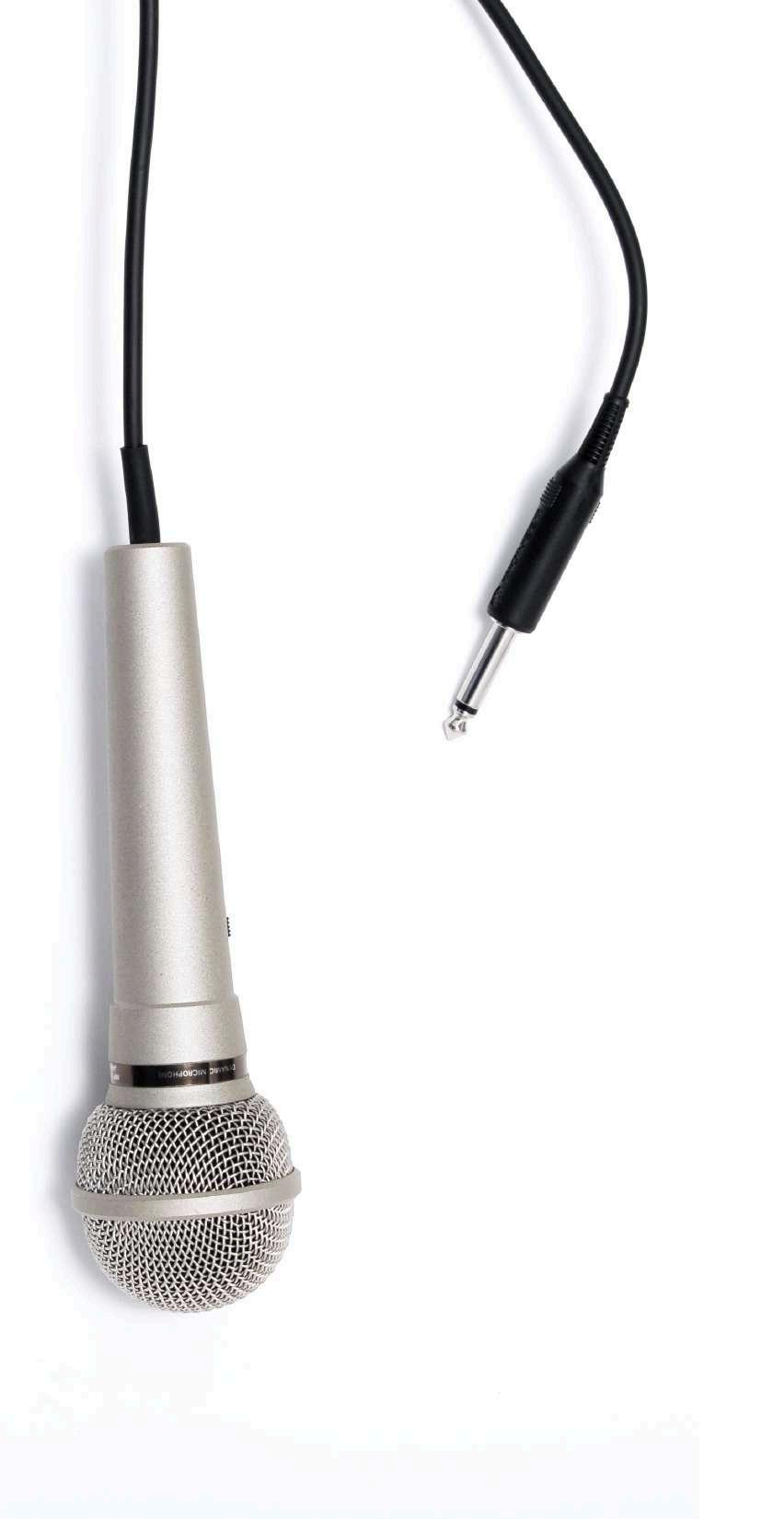











Lesego Stella Motshegwa

Asiphe Nompozolo
'Twenty plenty', they said! What a year it has been I don’t know about you but there are many things I wrote down at the start of the year that I didn’t achieve However, in the same vein, there are many things I didn’t write down that I surprisingly achieved - like launching two new podcasts (“The Podcast Sessions”, in May, and “Inside Wants Out” launching in December) as well as this incredible pan-African digital podcast magazine
This year, I’ve spent a lot of time in conversations on podcasting on the continent. And having spoken to industry leaders, staff in music stores, and recording studios, there’s no doubt that the African podcast industry is booming
Congratulations to you if you ’ ve launched a podcast this year or started planning to release one in the new year This world needs your podcast, we need your stories and we want to hear your voice

And while it is November and ordinarily, at this time of the year, things start slowing down Christmas decorations go up, Michael Bublé and Mariah Carey start warming their vocal cords and you start counting down the days until you can put up your “out of office” automatic reply I would however challenge you to jump on the podcast treadmill for one last session and ride the second wind.
For those of you who dare to join, here’s to one more repetition. One more interview. One more edit One more published episode One more article Since you never know how a conversation that you never intended to have with someone you never knew, could change your life, sometimes you ’ ve got to throw away the list and let life surprise you
2020, might not have been the year we thought it would be But despite the challenges, it has brought something out of all of us that we never knew was within At the start of the year, I received words that have sustained me and I will leave these words with you: There is more Keep Creating
EMAIL: RUTENDO@THEPODSESSIONS COM INSTAGRAM: @ROO10DOUGH | TWITTER: @ROO10DOUGH

Michael Mbaya and Jeanine Keet are the brains behind "December Fifth" - a diversely skilled, dynamic team of creatives.
They focus on digital content creation for brands for an online presence.
Connect With December Fifth:
Michael Mbaya: @michael mbaya
Jeanine Keet: @iamjaynine
Website: www.december-fifth.com

On the cover are representatives from "People of Colour Podcasts": Founder, Simmi Areff, alongside hosts of two of their shows Kgabo Legora (Son of a Son) and Aisha Baker (Baked, the Podcast).
Connect With The Podcasters:
Simmi Areff: @simmiareff
Kgabo Legora: @kgabo Aisha Baker: @bakedonline

Chumani-Nande Sishuba is a Mechanical Engineering student and the host of The Golden Hour podcast. Furthermore, she is the founder of Zalisidinga Foundation, a youth-based organisation that advocates for social reform by addressing issues that plague society and carries out initiatives that are aligned with the United Nations 17 Sustainable Development Goals
Podcast: The Golden Hour Instagram: @nandesishuba

Paula Rogo is media entrepreneur and podcast producer based in Nairobi, Kenya She is the co-founder of Africa Podfest, the continent's first podcast festival and the creator of #AfricaPodcastDay (Feb. 12). She also teaches podcasting classes specifically for women through her Podcast From Scratch course
Podcast: I have No Idea What I'm Doing Instagram: @kalibawse

Dalia Kinsey is a Registered Dietitian and creator of the Body Liberation for All podcast, a show dedicated to amplifying the health and happiness of LGBTQIA+ and BIPOC folks. On her mission to spread joy, and eliminate health disparities in her QTBIPOC community, she rejects diet culture and teaches folks how to use nutrition as a self-care and personal empowerment tool
Podcast: Body Liberation for All Instagram: @daliakinseyrd

Tyrone Fisher is a storyteller and thinker He is the creator of the platform Over Saturated and co-host on the Not Really Radio podcast. His passions lie in South African storytelling, male vulnerability and connecting diverse people, and using every form of storytelling that he can to promote and encourage those ideas
Podcast: Not Really Radio
Website: www oversaturated co za

A writer, creative, poet, dancer and dreamer Lesego Motshegwa is at first a journalist before anything else. Starting her career as a reporter for the Associated Press, saw her work appearing in publications internationally Now, as a freelancer, she continues to reinvent self Lesego is also the copyeditor for this issue of the magazine.
Instagram: @sego mots Twitter: @LesegoStella

WRITTEN BY: RUTENDO NYAMUDA

Three podcasters walk into a studio on a late spring afternoon in Johannesburg, South Africa, ready to shoot the November / December cover of “The Podcast Sessions” magazine
Like family, each unique in personality, yet bound by the fact that their podcasts are all housed under the same company, People of Colour Podcasts (POC Pods).

The music plays, the photographer prepares his lens and adjusts light. And as the podcasters take to the stage it would be amiss not to pause for a moment to take in this historic moment that would result in a cover featuring: Simmi Areff (comedian and founder of POC Pods; Aisha Baker (lifestyle influencer and Forbes Africa 30 Under 30 recipient) as well as Kgabo Legora (content creator who has been the official content creator for Mi Casa for five years).

Having spoken to each podcaster, they have much to share on life, lessons and the liberty to be their true selves behind the mic POC Pods was started by Simmi, who longed to see greater diversity and representation among the voices heard on the radio His company now produces five shows including: "Lesser Known Somebodies"; "Baked, the Podcast", "Son of A Son"; "Pod off the Press"; "Short Fine Legs" and their latest offering "Open Wide Say 'Ah'".
“I
MYSELF...
I
A
THE SCHOOL OF YOUTUBE [IS MY] UNIVERSITY."
SIMMI AREFF
With no official qualification in audio, Simmi says everything he’s learned from scratch
“I learnt editing by myself, I learnt how to record - but of course those skills came to me when I was in radio but taking them to a podcast level is something different I watched a lot of YouTube Videos, to be honest - the school of YouTube [is my] UniversityI am a Cum Laude [graduate] in that ”
One key aspect of holistically producing a podcast lies in making sure you have incredible audio - after all, it’s the business of audio
“I always focus on having the best audio I could get [but] because of the lockdown I guess you have a lot more leeway But if you don’t have a really good clear audio sound, people are just going to turn that off ”

The main thing that connects many people to a podcast are the hosts and joining Simmi on the cover are Aisha and Kgabo who are both trailblazers in their own right
As an entrepreneur, wife and, mother who had already built a name for herself in the industry, Aisha initially needed some convincing of this new industry
“It [podcasting] was a little bit foreign to me not only because I didn’t see myself as a ‘radio’ personality but because I was nervous about letting out my true personality into the world. Unlike radio, podcasts are less planned and more real, there's always a little bit of anxiety attached to letting people get to know the real me outside of my social media presence Now I am really proud and glad that I’ve gone on this journey with Simmi, it has empowered me in many ways but especially in being proud of the person I am outside of the online persona I’ve developed over many years ”

Aisha describes her podcast “Baked, the Podcast” as conversational and lighthearted with a strong focus on women Her guests have included a number of prominent people such as Rachel Kolisi, Rabia Ghoor (founder of Switch Beauty) and by far her favourite guest - her husband Wayne Parnell.
“For selfish reasons, my interview with my husband has been my favourite. He was really open emotionally which is not easy for him. He has grown up being somewhat of a star from a young age so it's made him really guarded I was proud hearing him get emotional about fatherhood I also really loved interviewing my own father as it was both therapeutic for our relationship and motivational for the audience ”
Conversations around masculinity, vulnerability and fatherhood form the foundations of Kgabo’s podcast, “Son of a Son”. Kgabo describes his podcast as personal, as he draws from his own personal experiences and speaks about the things that are curious to him about the people he interviews. He always looks for the hook.
"In the first season I had Mo-T on the [podcast], he comes from a line and generation of trumpet players His father was a trumpet player, his grandfather was a trumpet player and now he’s a trumpet player and they have been in iconic bands in the country There’s always an underlying theme.”
As a father of four, one boy and three girls, living in South Africa where gender-based violence is prevalent, he feels that this podcast is incredibly important within these discussions.
“One of the things that pushes me to keep going in these conversations is, you never know what seed you’re planting in someone's mind or someone's conversation I always think that even though I might not have the resources to go into communities or into homes and to equip men with what's needed to fight the fight, having these conversations is me playing my part in being part of the solution… One of the things that drove me to start this podcast was to make sure that we as men are intentional in our thinking toward how do we become better as men in society.”
Kgabo’s guest list includes the likes of J'Something, Austin Malema, and Mpho Popps However, one interview that stands out for him is an upcoming episode with Mlamli Booi
“He [Mlamli Booi] is a CEO of a state-owned company He is twice my age and he’s the first guest that I’m going to have that is a father of young adults that are in their young 20s. Most of the guests I’ve had have been fathers of toddlers or teenagers, he’s old enough to be my dad. That conversation was the most refreshing as I had a lot of questions and it was a bit emotional as it’s the first time that I spoke to someone that felt like a father-figure.”
Based on his personal podcast journey, Kgabo would encourage people to start their own podcasts His advice is, “Find your niche, work on your voice, work on your content, use any and all platforms that you have available to reach the audience you want to reach”
Aisha also believes that despite the podcast boom, there is always room for more.
“I think more conversations need to be aired from a South African perspective, especially in a nation so divided, conversations allow us to learn and find similarities in one another, starting a podcast is really not as challenging as it may seem,” she says.

CLICK HERE TO LISTEN TO KGABO'S PODCAST

With five successful shows under his wing, Simmi continues to keep his eye on the prize.
“My vision is to find more diverse talent and hear their stories I love a good story and I think one of the things that I’m really good at is crafting a story and listening to other people’s stories and finding ways of how to share them with the world I think there are so many great stories out there from different people and it’s exciting to hear something new.”
If there’s anything to be learnt from Simmi, Aisha and Kgabo it’s that there are no rules. Don’t ask for permission to turn on the mic, press record, and produce a podcast


Y O U R F I R S T V I R T U A L S U M M I T & G R O W Y O U R A U D I E N C E
WRITTEN BY:
DALIA KINSEY
Growing your list is not as easy as it used to be Gone are the days when consumers freely gave over their email addresses in exchange for low value freebies
We all know that offering value to our target audience is the key to growth A one-pager or a checklist isn’t going to wow anyone in 2020 A value packed virtual summit however is a game changer
Not only can you connect with customers and build trust in rapid time through a summit but you can reach a massive audience through collaboration with other speakers The virtual summit is the top way to offer value and drive traffic to your show in 2020 Here are the 5 crucial steps to launching your first successful virtual summit:
Create a clear schedule and marketing plan.
If your summit is wonderful but nobody knows about it, that defeats the purpose.
1
Determine what transformation your summit will create Ask yourself what will change for your attendees between the first and the last session of the conference This will guide you as you select what content to feature Take this brainstorm one step further and clarify how you want your attendees to feel every time they visit your platform and attend a session. Everything from your visuals, platform selection, marketing, and extras should connect back to how you want your attendee to feel and how you want them to grow.
2
3
Select presenters with care. Create an application that allows you to see the presentation skills of your potential speakers and only select people that will help you realise the vision you clarified in Step 1. Whether or not you have a budget to pay speaking fees, make sure you offer some kind of value exchange to your presenters (i.e. providing resources your speakers can reuse, turning their session into reusable snippets they can use on their platform and beyond). When you present the opportunity to potential speakers clearly explain the value you are offering them in exchange for their time.
Choose a platform that fits your budget and objectives If you want a small intimate conference, you may not need a robust platform that automates tasks for you In the end your choice is between saving time or saving money If your budget is slim you may choose the free version of a platform like Zoom or StreamYard I decided to focus my time on curating and marketing killer content when I selected HeySummit to host my virtual conference The platform saved me massive amounts of time for a small investment

4
Create a clear schedule and marketing plan. If your summit is wonderful but nobody knows about it, that defeats the purpose When planning out your marketing timeline remember that people need to hear about something several times before they take action Give yourself time to get this information in front of your target audience repeatedly I recommend a minimum of six weeks
5
Plan Your Welcome Sequence. Put a plan in place prior to launch for bringing attendees into your world after the summit is over. Create a welcome sequence inside your email marketing platform specifically for your attendees. Share you strongest episodes early in your sequence.
WRITTEN BY:
CHUMANI-NANDE SISHUBA
The moment I had to walk away from bonds that I thought would last a lifetime, I was voiceless. Speaking was not an issue however, the voice of my heart was silenced – disorientated, confused. The words I desperately needed to articulate my feelings were locked in the chambers of my chest. I knew that the only way I could make sense of this adjustment was to navigate through my emotions.
I succumbed to expressing myself through my online diary, popularly known as Twitter, with no other intention but to release the anguish that had made a home out of my body. Surprisingly, my followers were responsive. What started as a moment of self-expression inadvertently turned into a frank conversation among women. It sparked a dialogue around the importance of one’s value and walking away from those who do not recognise it. Malawian storyteller, Upile Chisala, once wrote “ … don’t ever let me hear you say that words are just words That words don’t leave a mark, make a change, create where once was nothing”
It is the dialogues and my embodiment of Chisala’s words that birthed the concept of ‘The Golden Hour’ podcast The podcast is a conversation among young women who are still trying to navigate their way to understanding themselves, and therefore promote the betterment of self, which is the most important relationship one has to nurture To achieve this, one has to dig deep and reflect on factors that have influenced one’s journey, factors that need correcting and unlearning for the betterment of one’s life The Golden Hour podcast provides that safe space and platform for all women that share these sentiments Here are a few things that I have learned in my podcasting journey:

Conceptualising my ideal wasn’t the problem, actualising it was I had no background on podcasting but I had the will and voice for it - which is of substantial importance Having a vision and actually bringing it to life is not as easy as it’s made out to be You need to ask yourself the three Ws – Why, What, Who Why are doing what you’re doing? Who does it cater to? What value does it add to your audience? It’s all about finding your niche Once you set the intention, your vision falls into place because it drives you to take the necessary steps in achieving what you’ve set out for yourself
DON’T DESPAIR, USE WHAT YOU HAVE
Once you have those answers, make use of resources at your disposal Personally, I don’t like putting myself in difficult situations if anything, I’ll always look for an easier, more cost-efficient way of getting things done Before I could invest in podcast software and mics, I was recording on my smart phones that have a good sound quality At the time, I had a Huawei Y30 and an iPhone 6S I downloaded the application ‘Anchor’ as a medium of recording, which I still make use of today It is user friendly, doesn’t require any monthly subscription fees and it allows you to record with multiple people at once, thus, making virtual podcast interviews possible

PUSHING THE PASSION AND WORKING HARD TO IMPROVE YOUR CRAFT

The criteria that I used to identify my guests was simple: they had to be relatable, multi-faceted and have the will to share their experiences and opinions in order to introduce different perspectives to various subject matter We’ve touched on topics such as the traumas left by psychological abuse we’ve experienced from past partners and how we dealt with the responsibility of healing We’ve also zoomed into body shaming within society and how the sexualization of women’s bodies influences the way we view ourselves from childhood all the way to adulthood To date, we have featured three phenomenal women in various industries in South Africa; Tlotlo Sebitlo - an Associate at PwC South Africa, Liat Madinane – the Chief Creative Officer at Sika Creative Agency and Bonolo Molaba – a psychology student at The University of Pretoria.
IMPROVE YOUR CRAFT
The artistry of life and creativity is making something out of nothing, doing the research, putting meaning into your work, bringing awareness to a craft that’s often overlooked and finally, the adrenaline induced high experienced from the build up of your ideations coming to life That’s truly something The beauty in podcasting is figuring it out as you go along, improving your craft and continuously trying to do better until you can comfortably articulate yourself in front of the mic
After all is said and done, you’re the only person who can set your dream in motion The vision, will and execution begin and end with you What makes it worthwhile is being a force for good and impacting the lives of others who are also trying to make sense of themselves and the world at large Your words matter, your voice matters, use them to create where there was once nothing

LOOKING FOR STATISTICS ON THE AFRICAN PODCAST INDUSTRY BUT CAN'T FIND ANY?
WE'RE DEDICATING OUR RESOURCES TO GENERATE AUTHENTIC RESEARCH ON THE AFRICAN PODCAST INDUSTRY. FOR AFRICANS BY AFRICANS.
WRITTEN BY: LESEGO STELLA MOTSHEGWA
As exciting as podcasting may be, one of the most rewarding aspects is producing material that sounds good Starting out as a podcaster has its teething moments and sound is most definitely one of them Most podcasters have had those moments where they’ve struggled to find a ‘good spot’ to record. Some have tried the blanket or duvet cover-up, or the driving seat or even the toilet as a recording booth.
Well, whatever it is that tickles your fancy, at the end of the day it’s all about managing the shuffle from the blankie, or the echo from the loo, or that distant hum or hoot from the cars in your neighbourhood.


Rutendo Nyamuda caught up with co-host of The Sobering Podcast’s Kitso Moremi about the nitty gritty of recording a podcast Here’s a snippet of what he touched on regarding the nuts and bolts of sound, software and equipment that podcasters need to think about when creating a beautiful sounding product.
A sound engineer within the advertising and television industry, Kitso is a pro in recording, mixing, and mastering In layman’s terms; mixing is making the recording sound good and mastering is making it sound consistent. According to him, managing sound is like throwing a tennis ball at a wall and managing how it bounces back to you. Yes, it may sound strange but that’s what sound engineering essentially is all about, trying to avoid the bounce back of your voice
Here are three of Kitso’s sound tips:

Find the place with the least sound reflection so that it doesn't have reverb – meaning not wanting it to sound like you're in a big room That's not a nice sound
“The solo podcasts are the easiest, because you're just dealing with one signal. So you can cut and boost and you can De-Verb, deplosive to your heart's content. When it's a lot more mics... then when I put all the mics together, you're still picking up different reflections of the room So you might want to place dampening agents to prevent sound from bouncing off glass, especially bouncing off corners So yeah, that's pretty much what I look at. So you'll find me clapping my hands everywhere, just to hear if the sound comes back.”
...And the blanket cover-up?
“I mean, if that doesn't work, you could have your wardrobe with a bunch of clothes hanging behind you So that the sound gets muffled into there It doesn't bounce back to you.”
22 2
When recording, you need to be aware that sound naturally travels, therefore how it feeds into any microphone also determines how your audience hears it. And just to add some extra drama in your life, the type of mic that you use can enhance or dampen your end product. But all is not lost because as Kitso explains, it’s also about understanding the mic that you’re using
“Condenser microphones are very, very, very sensitive to sound they're used more for studio work So you need a really treated room if you're using a condenser microphone, because it's going to pick up all the sounds. So if you've got cars driving past, it's probably going to pick that up if your room is not treated.
"[Dynamic] mics are more like rugged mics So they are more directional, hence they are mainly used for live performances and things of that nature. So if you are listening to a PA system, nine times out of 10, they're using dynamic mics. In other words, it picks up sound closest to where it is facing. So it's easier for you to isolate in an untreated room... And they're usually used for vocals.”
"...YOU NEED A "...YOU NEED A "...YOU NEED A REALLY TREATED REALLY TREATED REALLY TREATED ROOM IF YOU'RE ROOM IF YOU'RE ROOM IF YOU'RE
At times, it may be impossible for newbie podcasters to start with state-of-the-art equipment One of the most basic ‘recording studios’ is actually your phone and you have access to software via app stores Kitso gives a highlight of what is out there in the software market.
“I use Pro Tools, but I don't record on Pro Tools. I actually record analogue So I've got a small recorder, a Zoom H6 [I] just put the mics in there, record to an SD card, and then I'll take the SD card to the studio and then mix. So I don't record with software just because with that Zoom [H6 recorder], I can record for however long I want. I could go for five hours if I've got a big enough SD card. Whereas I found that when using software, you're only limited to how good your computer is especially when moving around Like at my studio I could record forever but like if I'm at such and such’s house and I'm on my laptop and two hours in, it just freezes and that's how any software works. [There’s] GarageBand, Logic, Cubase, Nuendo, YouTube, Pro Tools, Audacity [and] WaveLab So anything that you can get your voice recorded on, works Even your voice memo on your iPhone works if you're doing a solo podcast I think Shure has a nice app that you can use It works brilliantly on iPhones. It's called ShurePlus MOTIV.”
* Rutendo Nyamuda’s interview with Kitso Moremi will be available on The Podcast Sessions on Thursday, 26 November.







S E V E N
P R O B L E M S
F O R A
S O U N D I N G
R E C O R D I N G
T O A V O I D
B E T T E R
P O D C A S T

WRITTEN BY:
PAULA ROGO
What is a production nightmare that haunts most podcasters? The answer: finding audio issues with your recording when it’s time to sit down to edit
These types of issues can often lead to more time in post-production or, even worse, having to throw away the whole recording and start again from scratch From wind buffeting to reverberant, here is a list of recording problems to get familiar with and to avoid during your recording sessions
When a speaker’s voice “echoes” or reflects within a space, this is usually due to reverb within large rooms Every room reflects sound, but larger rooms have more space for sound waves to travel through This makes your sound appear like it is being recorded in a bigger room Rooms with a lot of hard surfaces, like bathrooms and kitchens, will often cause reverb
When you are outdoors or in windy environments, wind buffeting will take place. Like with plosives, this is when air touches the diaphragm of a microphone. As a result the sound will be distorted.
Mouth noise is sound captured of the tongue, lips and saliva when a mic is too close It comes off as a dry mouth, but also sounds like slurping and lip smacking It is a highly unpleasant sound and no one likes to hear it
Handling noise sounds like when the microphone is being hit or moved around. This usually happens when the mic is being handheld or not properly mounted.
Distortion can come off sounding “fuzzy” or “staticky.” The audio could also sound like it is breaking up. Distortion tends to occur when audio levels are too high for your equipment or software.
Plosives, also known as “p-pops”, happen when the sound around the letters p, b or t come out distorted This distortion happens because the extra air touches the diaphragm of the microphone and causes a thumping sound
Hissing or static sounds usually occur when there is a mismatch with recording levels, especially between two devices. Sometimes it can be caused by low-quality equipment.

A9TO5JOB?
I can think of multiple South African podcasts that have started in the last two years and have gone completely quiet. The truth is most South African podcasters do it because they are passionate about the medium. They make money doing other things. Staying consistent with that is tough.
For our podcast, Not Really Radio, myself and my cohost, Hlumelo Maqubela (better known as Miv), both worked full-time jobs when we started it What we had to do was find a way to maintain the podcast, while keeping our jobs Now most people would argue that you need to release episodes consistently if you want to grow, every week or at least every two weeks
Most of the podcasts I’ve seen fail started like that Starting hot, but going out just as quickly Miv and I knew from the beginning of our podcast that once a week wouldn’t be possible for us It takes me a good few hours to edit any episode and finding those hours during a week can be a real struggle We decided that we would release episodes whenever we could rather than sticking to a schedule
This gives us a few freedoms It allows us to really focus on making good episodes and editing those episodes really well It lets us earn a living, while doing something we love on the side and still maintaining a personal life It also means that we keep on making the podcast
We have now been live for about a year and a half and released 15 episodes
How does this impact the growth of our podcast?
Our podcast keeps on growing, our listenership has gotten a lot bigger with shoutouts from internet celebs like Buhle Lupindo
I would argue, it has slowed our growth down a bit as we are only on people’s minds when we promote our latest episode I don’t have exact data to argue that, but I do think this has made our initial growth a bit slower
“WE CAN REALLY FOCUS ON MAKING MONEY WITH OUR FULL-TIME JOBS AND USE THAT MONEY TO INVEST IN THE PODCAST, RATHER THAN FIGHTING TO MAKE THE PODCAST PAY FOR ITSELF.”
"What we want is something that lasts long-term, running it sustainably helps us do that. We don’t get discouraged if we miss a month, or if an episode takes three weeks to edit. As long as we keep producing episodes when we can."
You could argue that it means that the podcast might be more likely to fail That is where I think our strategy has benefits We are starting slowly and according to the time that we have available, so there is less cost in terms of time We are running it in a way that is sustainable to our lives For us that is the only way to run the show
What we want is something that lasts long-term, running it sustainably helps us do that We don’t get discouraged if we miss a month, or if an episode takes three weeks to edit As long as we keep producing episodes when we can
It also means that we can really focus on making money with our full-time jobs and use that money to invest in the podcast, rather than fighting to make the podcast pay for itself This means when our hosting costs come up at the end of the month, we are not worried about it It means we can provide the drinks for every episode, and we are able to buy microphones for the show
Naturally there are down sides, if we released weekly then we might be a bigger podcast now, but in truth, the way we make our podcast work is the only way we can really do it at the moment We are passionate about it, so it being something that we do for the passion at the moment is great
To close I want to paraphrase Miv when we were discussing our strategy: “I want to make content that we don’t have to release regularly but whenever we release it, our audience shows up to listen to it ”





















LET TINZWE MEDIA TAKE CARE OF ALL YOUR PODCASTING NEEDS!
With access to talented voice artists, production facilities, and with over 10 years of media and broadcasting experience, our hands-on team is well equipped to take your brand’s podcast from non-existent to next level!
View our services below, and contact us to book a consultation today.
Podcast Production | Podcast Training | Refining Ideas | Interview Best Practices | Graphics & Audiograms | Editing | And so much more...












